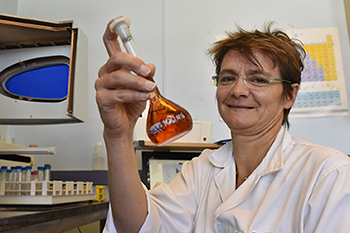Latest News Archive
Please select Category, Year, and then Month to display items
17 August 2020
|
Story Nitha Ramnath
|
Photo istock

Within the next five years, 60% of the world’s population will be living in urban areas. Urban living comes with large-scale economic advantages and society benefits from economies of scale. But, COVID-19 is challenging urban living. We have introduced the term ‘social distancing’ and some policy analysts have even argued for the de-densification of cities.
Join us for a discussion where our panellists will analyse this perceived conflict.
Date: Thursday, 27 August 2020
Time: 14:00 to 15:30 (South African Standard Time – GMT +2)
Please RSVP to Elelwani Mmbadi at
mmbadiE@ufs.ac.za no later than 25 August, upon which you will receive a Skype for Business meeting invite and link to access the webinar.
Speakers:
Prof Ivan Turok
Dr Geci Karuri-Sebina
Mr Thiresh Govender
Moderator:
Lochner Marais
UFS Ground Studies Laboratory receives accreditation to international standard
2016-03-18

Lore-Mari Deysel, Deputy-Director of the institute for Groundwater Studies.
Photo: Charl Devenish |
The Institute for Groundwater Studies (IGS) Laboratory at the University of the Free State is on equal footing with international testing labs. With its accreditation in March 2016 by SANAS (South African National Accreditation System), the IGS Laboratory now officially meets global standards.
Quality of water
The IGS Laboratory mainly analyses the quality of water samples. When it was originally established in 1989, the lab’s central function was to conduct testing for researchers at the institute itself. “After the public and water boards realised their need to analyse water samples, the IGS Laboratory expanded to deliver a service to these clients,” says Lore-Mari Deysel, Deputy-Director of the institute.
Since suppliers and regulatory authorities will not accept test or calibration results from a lab that is not accredited, the IGS initiated the accreditation process.
Accreditation to international standard
In order to be deemed technically competent and able to receive accreditation, labs must meet the ISO/IEC 17025 standard. ISO/IEC 17025 was first issued in 1999 by the ISO (International Organization for Standardization) and the IEC (International Electrotechnical Commission).According to Deysel, this is the single most important standard for calibration and testing laboratories around the world.
“Laboratories that are accredited to this international standard have demonstrated that they are technically competent and able to produce precise and accurate test and/or calibration data. Furthermore, it demonstrates that the university has the capacity to supply valuable and reliable services alongside the academy,” Deysel says.